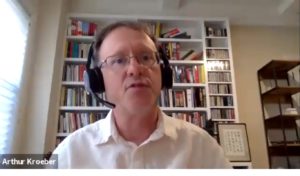
a crackdown against piracy in Fuzhou
Regular readers of this weblog know I get mildly amused when Western media start writing about crackdowns, especially when the government tries to go after the internet. This week we had even two cases.
First, China's central government promised Germany to crack down on efforts to hack official German sites. A story in the German magazine Der Spiegel said that the People's Liberation Army (PLA) had been hacking the computer systems of important German ministries.
The story was stinking like a one week dead fish already from the start and not only because of the lack of proof of the allegations. The "security breach" was already discovered back in May, but only published just ahead of the visit of Bundeskanzlerin Merkel to China. That indicates a clear move to set the political agenda and perhaps give other subjects lower priority.
Let's look at the reality online. We just had this beautiful story about an Australian teenager who unabled twice in one day expensive porn filters the Australian government had activated. Then there is the story of this other teenager who unlocked Apple's iPhone successfully. Of course, when the German state security discovers they have been hacked, they cannot say they have an issue with perhaps a few million bored Chinese teenagers. They have to come with something big, say, the PLA. I side here with some of my Chinese friends who say Chinese teenagers are probably better positioned to crack websites than the PLA.
Equally funny was the pledge by some of China's largest weblog hosts, including Yahoo and Microsoft, to act responsibly and rely on self-discipline, whatever that could mean. Of course, this was the basis of many alarmist articles, I happily ignored. Fortunately, Rebecca MacKinnon decided to read some Chinese bloggers before jumping on the bandwagon of the alarmists.
They seem to view the pledge as a bunch of bureaucrats making yet another meaningless pledge to justify their existence. Keso points to a long list of other self-discipline pledges made over the past few years which, he says "other than giving us joke material, they've pretty much not amounted anything."
Most beautiful saying: "loud thunder with light rain". As Rebecca notes, just following blindly press releases by organizations like Reporters Sans Frontieres or others, without confirming first with Chinese sources, it not done anymore. More at Rconversations.
